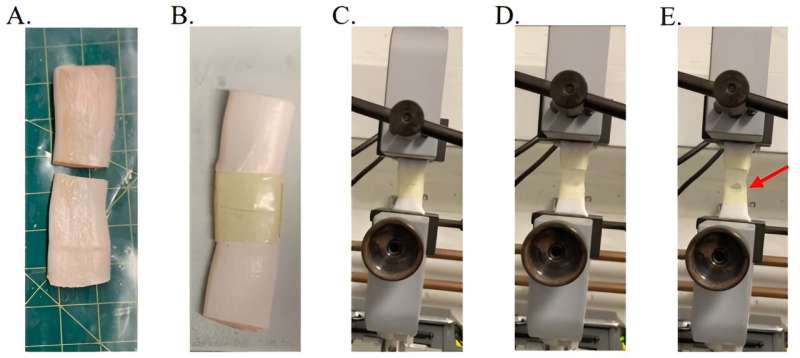
A team of bioengineers from the University of California, Berkeley, has introduced a groundbreaking eco-friendly adhesive polymer. Their study, published in Science, details how they utilized an electrophilic stabilizer to prevent the degradation of a particular fatty acid, making it suitable for adhesive applications.
In the same issue of the journal, Zhibin Guan, a chemist from the University of California, Irvine, provides a Perspective article on this innovative research.
Guan notes that while polymer adhesives are widely used, many are designed for specific tasks, such as gluing wood, and lack versatility. Furthermore, numerous conventional adhesives are harmful to the environment, affecting both plant and animal life.
The Berkeley team set out to create a sustainable adhesive that could be applied in various fields, from medical to industrial. They focused on polymers made from α-lipoic acid (αLA), a naturally occurring fatty acid that breaks down naturally. By incorporating an electrophilic stabilizer, they successfully prevented the polymers from degrading, resulting in a series of biodegradable adhesives that are environmentally friendly.
Their experiments demonstrated that these αLA-based adhesives could effectively bond wood, metal, and tissue while being harmless to the environment. Notably, one pressure-sensitive adhesive they developed showed ten times the peel strength of conventional adhesives and functioned well in both wet and dry environments.
The new adhesives performed comparably to those derived from petroleum, and many featured self-healing properties, making them ideal for medical applications.
Moreover, the team pioneered a closed-loop recycling system that transforms used adhesives into new ones by using an aqueous solution.

:max_bytes(150000):strip_icc():format(webp)/alec-baldwin-torino-film-festival-121824-3cf7cfbe5c4f4bcbb9197de4de062ea6.jpg?strip=all&resize=370,370)
:max_bytes(150000):strip_icc():format(webp)/Jimmy-Fallon-and-Prince-Harry-092624-baa1362d743d4f39a7d60bf57eb6e8b2.jpg?strip=all&resize=370,370)
:max_bytes(150000):strip_icc():format(webp)/randy-moss-121324-40b858c71b0f40bfa399e2fe00152b2a.jpg?strip=all&resize=370,370)
:max_bytes(150000):strip_icc():format(webp)/scandal-kerry-washington-121824-c51a2b5f0ef741268474bec2498c285a.jpg?strip=all&resize=370,370)
